Tired of finding holes in your leafy greens or tomatoes? Try these tricks to get rid of snails, slugs, and caterpillars from your vegetable garden!
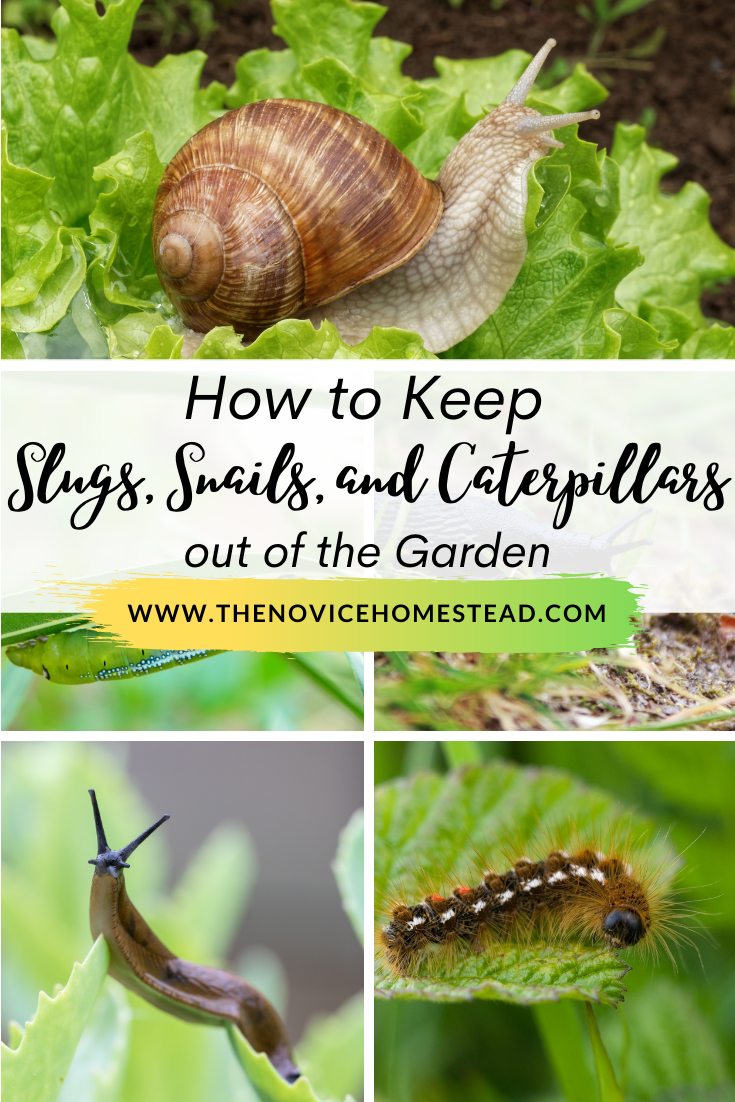
Snails, slugs, and caterpillars are some of the most common and destructive garden pests. They can make quick work of your tomatoes and leafy greens if you’re not careful!
How to Keep Snails and Slugs off Your Plants
Slugs, snails, and caterpillars may get into your garden by different means, but the end result is the same — they are devastating to plants if left unattended!
The following are some of the methods that I use to repel or get rid of these pests. Some of the strategies will work for all three (slugs, snails, caterpillars), while some are species specific.
All are safe, organic ways to keep these crawling pests out of your garden!
1. Plant Herbs and Flowers that Repel Bugs
Caterpillars are turned off by some scents, so cultivating their least favorite plants can serve as a deterrent.
Common plants that help repel caterpillars include:
- Marigolds
- Lavender
- Peppermint
- Sage
This method isn’t foolproof, but I do notice that these plants are helpful for lowering the amount of caterpillars in my garden.
For example, my raised bed that is surrounded by marigolds and lavender had less caterpillar activity than other beds. And my herb garden that contains both sage and mint had NO caterpillars whatsoever.
Plants that repel slugs and snails:
- Marigolds
- Chives/green onion
- Rosemary
- Garlic
I have lots of green onions, rosemary, and marigolds in my garden. I’m happy to report that I see almost no snails or slugs at all! I find these plants to be very effective.
2. Make Your Garden Wasp-Friendly
Ok, I don’t really like wasps. If they build a nest on my house, then they’ve got to go!
However, when I see a wasp in my garden, I leave it alone. That’s because many wasps are actually quite beneficial for gardeners!
Not only are some types of wasps effective pollinators, they can also help get rid of common garden pests, such as tomato hornworms.
Wasps will lay eggs on/inside a hornworm or caterpillar. When the eggs hatch, the wasps’ offspring will feast on the caterpillar. It’s not a pretty sight…and I *almost* feel bad for the caterpillars!
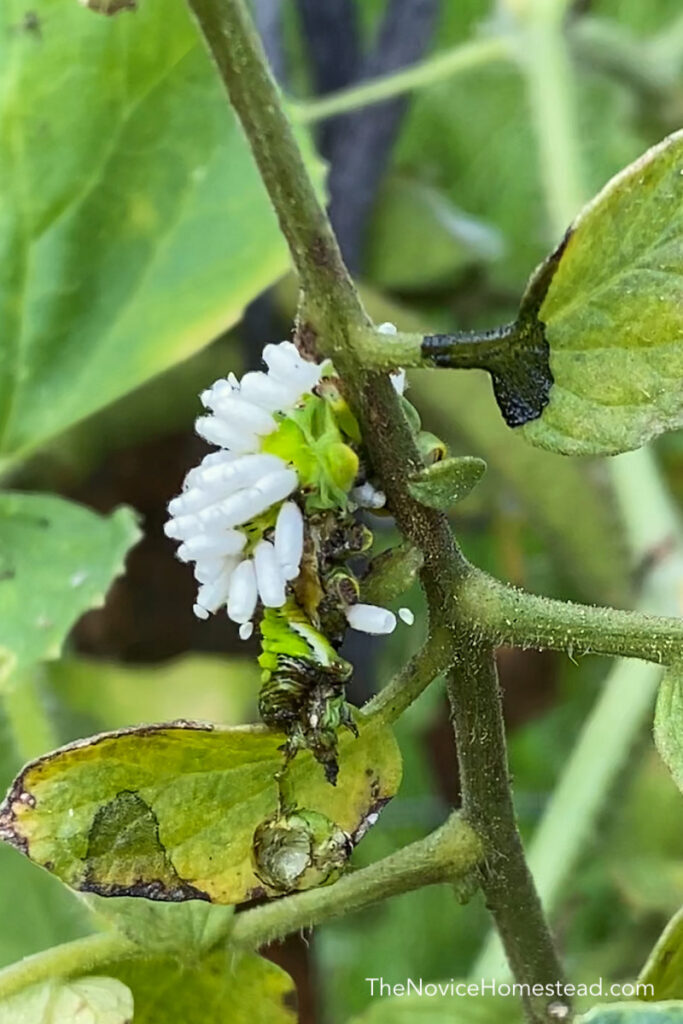
Sometimes wasps will even kill caterpillars and worms for themselves!
So the next time you see a wasp buzzing around your garden, remember, they can be helpful! Just be sure to give them some space so they don’t see YOU as a threat.
Related: How to Attract Pollinators To Your Garden
3. Use a repellent spray
Note: We’ve included shop-able ad links to products we love and use; read our disclosure policy here.
I generally try to avoid insecticides as much as possible. However, there are occasions where pests get out of control, such as the rainy season. In that case, my choice is to either let the insects have their way or to utilize a tougher approach.
The good news is that you can find insecticides that are approved for organic gardening, such as Monteray Bt (Bacillus Thuringiensis) Worm & Caterpillar Killer. This spray targets caterpillars and similar pests and is harmless to beneficial bugs like bees and earthworms.
You can also make your own bug repellent, like our easy Peppermint Insect Repellent Spray, which uses natural essential oils that bugs hate.
4. Set a trap
My grandpa taught me this trick! He used beer traps to keep slugs away from his tomato garden. I remember marveling as a kid when I saw all the poor drowned slugs!
Here’s how it works…
Slugs are especially attracted to the smell/taste of beer. Yep, beer!
Dig a hole and bury a cup or small dish in the hole so that the rim is level with the surface of the dirt. Fill the cup at least halfway full of beer. I used cheap beer — no need to get fancy with bugs!
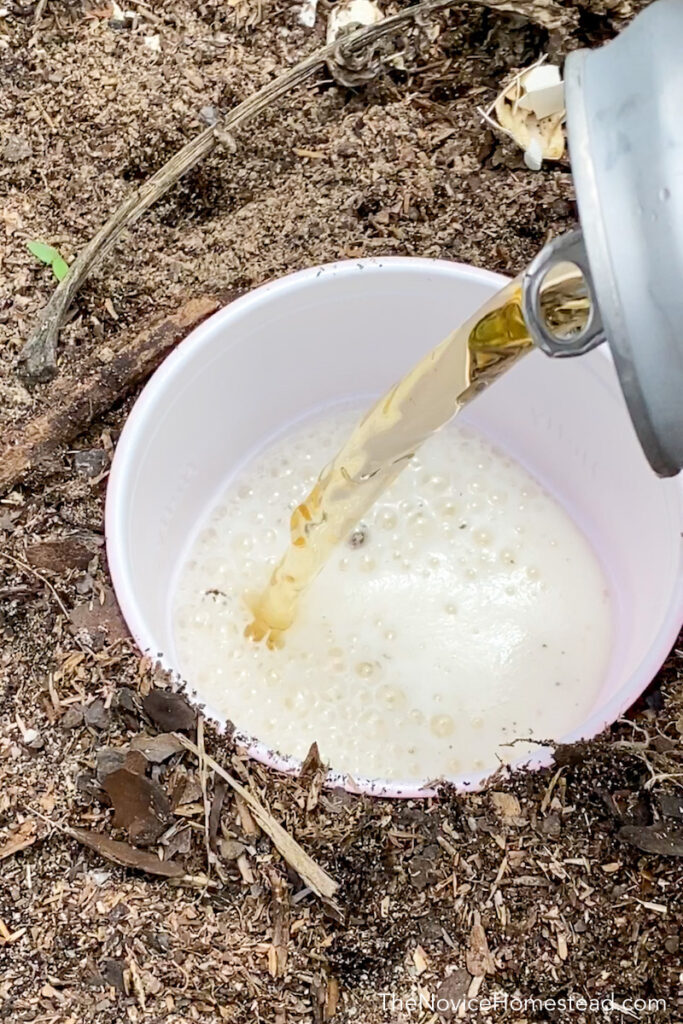
Slugs will head towards the beer and fall in the cup to drink it…but they can’t get out! I found that this worked for caterpillars too in my garden, since I have less trouble with slugs.
If you have a lot of slugs, I definitely recommend this method because it works!
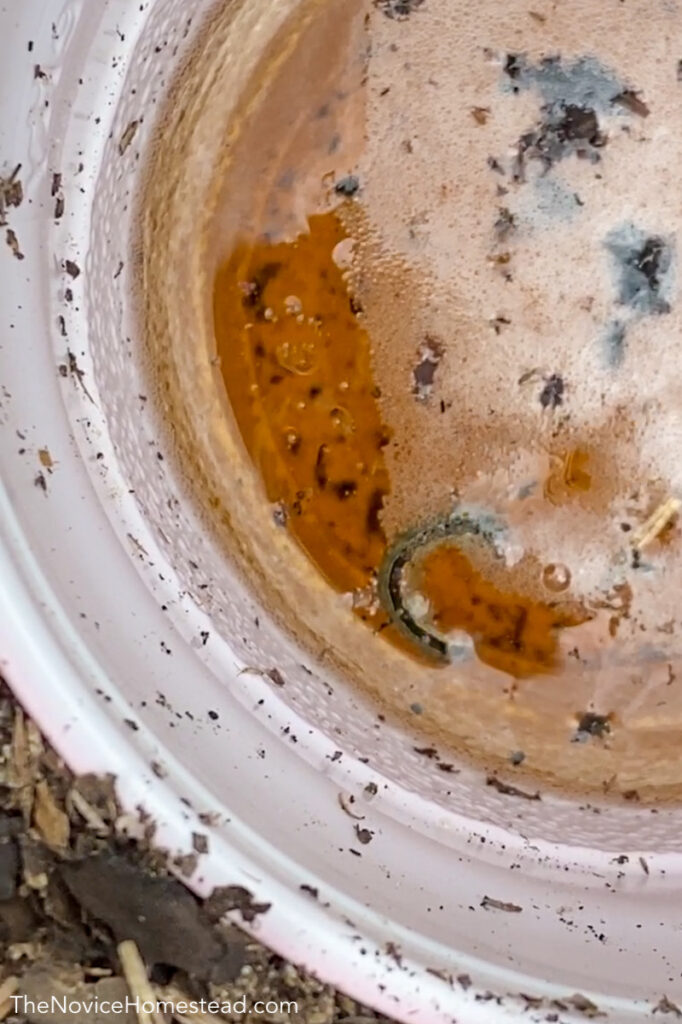
When the beer gets yucky or diluted with rain water, dump out the traps and refill.
5. Surround Plants with Eggshells
Crushed eggshells can be used to create a barrier around the base of a plant. The eggshells act like glass to caterpillars, slugs, and snails so they won’t want to crawl over them.
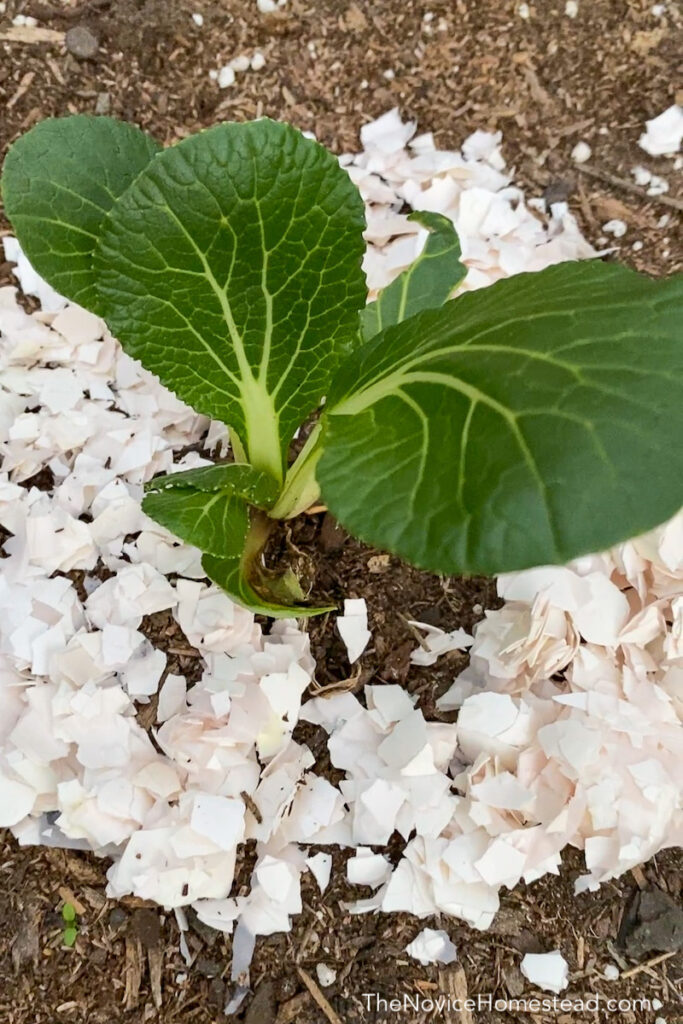
This method will work for bugs that don’t hatch from eggs on the plants themselves. It will work for bugs that try to crawl their way into the garden.
I collect all my used eggshells. Then when I have a bunch, I wash in soapy water, crunch into smaller pieces, and allow them to dry out. Then I put them around vulnerable plants in my garden. T
his helped a lot with my broccoli and kale, which were favorite targets of caterpillars and similar bugs.
6. Pick them off by hand
The methods listed above are preventatives. However, when I actually see caterpillars, slugs, etc. in my garden I get rid of them immediately.
The easiest, most effective way to do so is to pick the caterpillars off plants by hand…and then smush them. That way they can’t come back.
Yep, it’s gross. But it works.
Usually when caterpillars appear, it means that they hatched from eggs. Moths fly into gardens and lay eggs on the plants. When the eggs hatch, caterpillars appear and start eating everything in sight.
The good news is that the eggs don’t hatch year-round, but rather in a short span of time. So if you can kill all the caterpillars, they don’t just keep reappearing indefinitely. There is a limited supply, based on the number of eggs that were laid.
That’s why sometimes it is simply easier to take care of them yourself instead of spraying plants and hoping that they die.
I recommend grabbing a pair of rubber gloves to keep your hands clean. I don’t use my regular garden gloves because I prefer not to get bright green caterpillar guts all over them!
thank you the beer wasn’t working now going for peppermint plant in there and spray